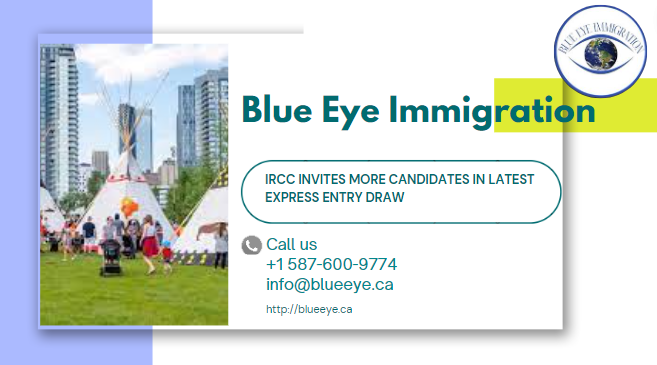Immigration Refugees and Citizenship Canada (IRCC) has invited more candidates in the latest Express Entry draw of 2023.
On August 15 the immigration department issued 4,300 invitations to apply (ITAs) to candidates in an all-program Express Entry draw. The minimum Comprehensive Ranking Score (CRS) was 496.
Overview of recent Express Entry results
August 2nd
On the 2nd of August, IRCC held a category-based draw inviting candidates with French proficiency from the Express Entry pool. The department issued 800 ITAs to those with a minimum CRS score of 435. This was the first targeted draw for French speakers since July 12th.
August 1st
IRCC held an all-program Express Entry draw on August 1st, inviting 2,000 candidates from all three programs encompassed within the Express Entry system (the Federal Skilled Worker Program (FSWP), the Federal Skilled Trades Program (FSTP), and the Canadian Experience Class (CEC). Candidates with a minimum CRS was 517 were invited.
July 11th-12th
IRCC issued 3,800 (ITAs) for permanent residency (PR) on July 12th, under a category-based selection draw for French-speaking candidates. Candidates required a minimum CRS score of 375 to be invited. This was the lowest draw CRS score of any draw in the last month.
IRCC held an all-program Express Entry draw on August 1st, inviting 2,000 candidates from all three programs encompassed within the Express Entry system (the Federal Skilled Worker Program (FSWP), the Federal Skilled Trades Program (FSTP), and the Canadian Experience Class (CEC). Candidates with a minimum CRS was 517 were invited.
July 11th-12th
IRCC issued 3,800 (ITAs) for permanent residency (PR) on July 12th, under a category-based selection draw for French-speaking candidates. Candidates required a minimum CRS score of 375 to be invited. This was the lowest draw CRS score of any draw in the last month.
On July 7th, Canada held a targeted Express Entry draw for candidates with French language proficiency. 2,300 candidates with a minimum CRS score of 439 were given ITAs through this draw.
On July 6th, IRCC conducted its second category-based Express Entry draw for healthcare workers. The department invited 1,500 healthcare professionals in the Express Entry pool, who had a minimum CRS of 463.
On July 5th the immigration department held its first-ever targeted draw for Science, Technology, Electronics, and Mathematics (STEM) workers. This round saw 500 ITAs issued to STEM professionals with a minimum CRS of 486.
On July 4th IRCC invited 800 candidates to apply for PR, in an all-program Express Entry draw. The minimum CRS score for this draw was 511.
June 27th–28th
June 28th marked the very first targeted category-based draw in Express Entry’s history. IRCC invited 500 candidates with work experience in healthcare professions to apply for PR. The minimum CRS score for this draw was 476.
June 27th saw another all-program Express Entry draw. The immigration department invited 4,300 candidates from all three Express Entry programs, with a minimum CRS score of 486.
What is Express Entry?
Express Entry is an immigration application management system, that manages the Federal Skilled Worker Program (FSWP), Canadian Experience Class(CEC), and Federal Skilled Trades Program (FSTP). These three programs represent one of Canada’s most popular pathways for economic immigration into the country.
Candidates are assessed based on their human capital factors such as work experience, professional fields, language skills, education, and age. Based on these factors, a Comprehensive Ranking Score (CRS) assigns a score and ranks these candidates. Those with the highest scores after a draw’s given cut-off date, have a higher probability of receiving invitations to apply (ITAs).
IRCC recently announced a new set of selection criteria on May 31st, emphasising specific professional and demographic attributes of candidates over just their CRS score. This gave rise to six new categories for Express Entry candidates:
• Healthcare;
• STEM professions;
• Trades;
• Transport;
• Agriculture and agri-food; and
• French-language proficiency.
These categories aim to fill urgent job openings in the Canadian workforce and promote the use of the French language outside Quebec.

